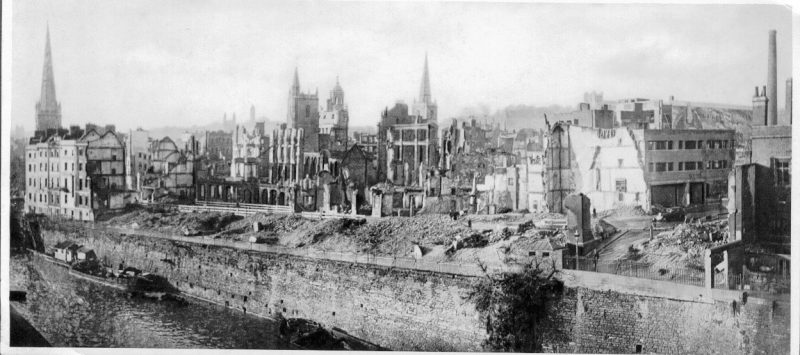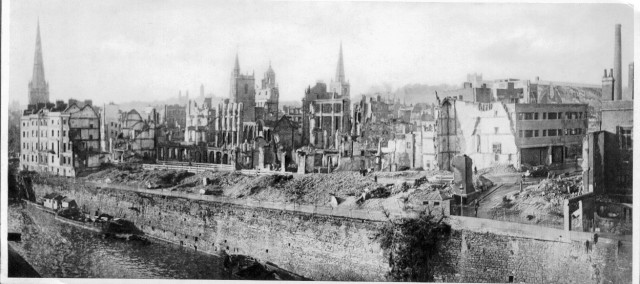Seventy-five years after the UK experienced its worst bombing raids in the Blitz, the western city of Bristol has commemorated one of its severest attacks. Over 200 people died in the six-hour bombing raid on 24th November 1940. Almost 190 people were injured, and around 1400 lost their homes.
It was a Sunday evening, and the Nazis had sent almost 150 Luftwaffe bombers over the English Channel to target specifically the city of Bristol. The onslaught began at 6 pm and didn’t end until midnight. Another British city that had taken a battering just seven days earlier was Coventry, but Bristol was an important target for the Luftwaffe; it withstood six further bombing attacks through the winter of 1940 and 1941. A total of around 1,300 local people died, and around the same number were injured or wounded.
The Luftwaffe planned to target and destroy Bristol’s port, as well as the Aeroplane Company located near the city centre. Bristol’s port had been a target since it was used to transport and distribute supplies across the country, as well as being the location where British Navy ships were being built and repaired. Unfortunately, much of Bristol’s old town and ancient medieval architecture was also destroyed.
Sybil Moores, now 100 years old, was a nurse who lived through Bristol’s Blitz. During the war, she worked at Bristol’s Royal Infirmary. Sybil says that even though there was an air raid shelter nearby, the nursing staff and doctors on duty never used it since they were too busy dealing with the casualties.
On the night of that first devastating raid, Sybil says that there were only two nurses on duty. She recalls how they didn’t have time to think – they just reacted to the situation at hand. As the raid continued, the local General Hospital had to close its accident and emergency department, but the staff weren’t sent to the Royal Infirmary even though it was severely understaffed. Finally, a surgeon got Sybil four more nurses to help.
Mildred Ford also survived the Bristol Blitz. She’s now 85 years old but was just 10 at the time of the bombing. She was staying with her relatives when the first raid happened; she said that all of her family survived, but that they were lucky. Mildred remembers spending the entire night in an under-stairs cupboard.
Eric Tyler was a fire watcher during the raids and was only 22 when he experienced his first Luftwaffe attack. Eric was tasked with watching for incoming bombers and noting where they were targeting so that he could mobilize rescue and emergency services to the scenes. Eric remembers shovelling up the remnants of bombs that were still piping hot. He says that everyone was in shock and was scared of what was happening.
His memories include bright red flames and how atrocious was the sheer noise of the bombing. Eric recalls that the following day he was shocked and stunned by the devastation that had occurred across his home town.
Monty Britton was just 12 years old during the Bristol Blitz. He lived with his grandmother in a terraced house in the Horfield area of Bristol. Now 86, Monty says that people began to expect to be bombed since Bristol was such a center for the British war effort, the BBC News reports.
Monty and his friends would explore the bombed houses and areas the day after a raid and would have competitions about who could find the biggest piece of shrapnel. During raids, Monty and his family would hide out in their under-stairs cupboard. Meanwhile, some of the men on his street would be on patrol armed with a bucket of sand, a bucket of water, and a pump – ready to put out any fires. At the time, Monty says that he thought it was exciting, but that it was also scary.

